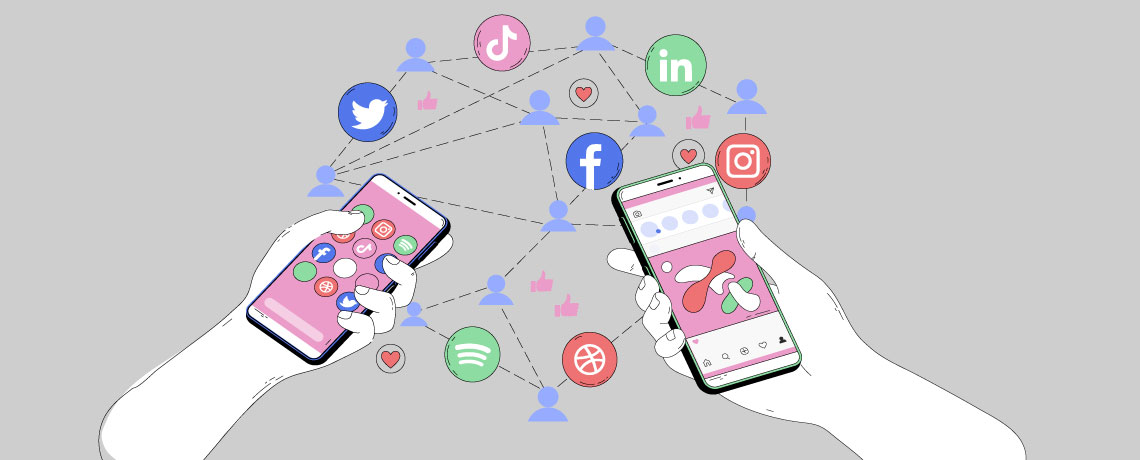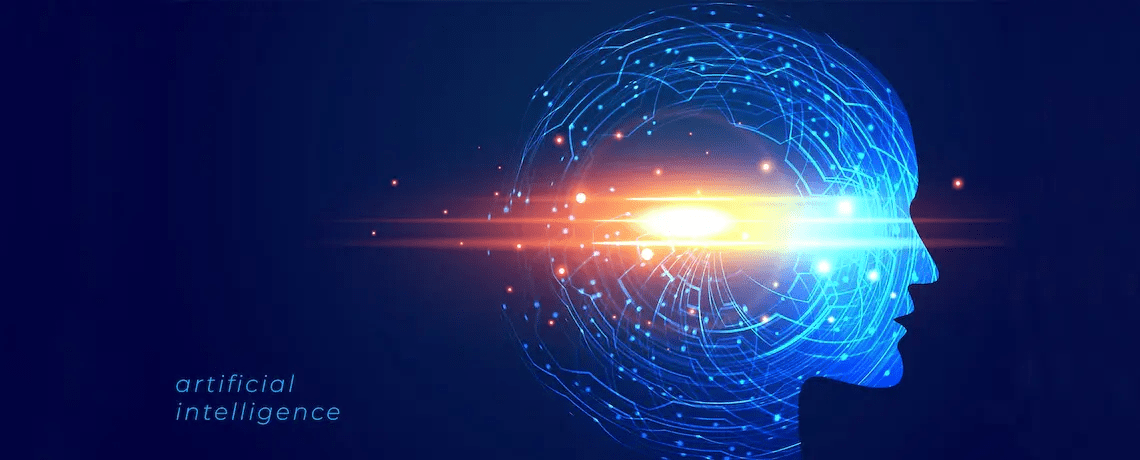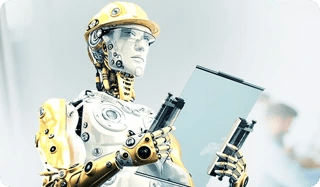How Artificial Intelligence is Shaping the Next Generation of Engineers for Industry 4.0

Why are so many manufacturers hiring data scientists instead of only mechanical engineers? Because the factory floor is no longer just about machines and mechanics, it’s now built around Artificial Intelligence. AI in Industry 4.0 is not some distant plan. It’s already inside the sensors, supply chains and planning dashboards. Whether it’s predicting when a machine will fail or reducing scrap in real time, AI has moved from concept to control panel.
For engineers, the shift is massive.
The impact of AI on Industry 4.0 is reshaping not just production methods, but also the roles of engineers themselves. Mechanical expertise is no longer enough. Data fluency and algorithmic thinking are fast becoming the new must-haves.
In its 2023 report, McKinsey found that nearly 60% of the top use cases implemented by the 21 newest Lighthouses now involve Artificial Intelligence. The report also says, “AI-based use cases in this latest cohort alone have seen remarkable results, including a two to three times increase in productivity, a 50% improvement in service levels, a 99% reduction in defects and a 30% decrease in energy consumption.” These aren’t experimental labs; they’re high-performing plants in China, Germany and India delivering faster, smarter outcomes at scale.
AI in Industry 4.0 is no longer a trend. It is the engine powering change across factories, design labs and supply chains. For engineers, this shift is not only about learning to code or operate robots. It is about becoming decision-makers who can combine data, design and real-time action into one seamless flow. AI is becoming a strategic lever. And those who understand its value will shape the future of engineering.
How Industries Have Evolved with the Industrial Revolution
Every industrial revolution changed the world. Industry 4.0 is a real, measurable shift in how industries operate. From the shop floors of automotive giants to pharmaceutical labs and smart steel plants, the fourth industrial revolution is already reshaping how engineering is practised.
It is the successor to three earlier waves of industrial transformation:
- 1st Industrial Revolution: Steam and mechanical tools.
- 2nd: Electricity and assembly lines.
- 3rd: Computers and automation.
- 4th: AI, machine learning and intelligent systems.
Industry 4.0 isn’t just about faster machines; it’s about connected, thinking, learning factories. AI doesn’t just follow instructions. It finds patterns, predicts outcomes and makes decisions.
What sets Industry 4.0 apart is intelligence. It’s not just machines that work; it’s machines that learn, predict and decide. Why does this matter to future engineers? Because the skills required to run these smart systems are entirely different from those needed a decade ago.
Today’s factories:
- Use AI algorithms to predict machine failures
- Deploy computer vision to inspect defects
- Integrate real-time data from thousands of sensors
- Require engineers who can work with data, code and machines
Understanding What Industry 4.0 Really Means and How AI is Shaping It?
Industry 4.0 connects machines, sensors, data and people into a smart loop to create smarter systems that make decisions in real time and improve continuously without waiting for humans to catch up.
This is the fourth industrial revolution, and it brings together:
- Cyber-physical systems
- IoT (Internet of Things)
- AI-driven analytics
- Autonomous decision-making
- Cloud computing
- Digital twins
The earlier revolutions gave us steam, electricity and automation. This one adds intelligence. But, where does Artificial Intelligence in Industry 4.0 actually show up?
- In machine learning models that detect quality issues before they happen
- In predictive maintenance that avoids unplanned downtime
- In digital twins that simulate production lines before a single bolt is turned
- In computer vision that helps robots spot defects or anomalies in parts
Each of these use cases adds speed, accuracy and cost savings. But what makes AI different from past tech is that it learns and adapts. That’s a game-changer.
Making Sense of Trending Technical Terms
People often throw around words like AI, machine learning and automation as if they mean the same thing. But they don’t.
| Term | Simple Meaning |
|---|---|
| Artificial Intelligence (AI) | Systems that mimic human intelligence and decision-making |
| Machine Learning (ML) | AI that learns patterns from data without being explicitly programmed |
| Automation | Fixed rules for machines to follow |
| Analytics | Analysing historical or current data for insights |
| Digital Twin | A real-time virtual replica of a physical process or product |
| Generative AI | AI that creates new content |
| Predictive Maintenance | Using AI to predict when equipment might fail |
AI in the Manufacturing Value Chain: From Planning to Delivery
Artificial Intelligence is the brain of Industry 4.0. It connects machines, analyses data, predicts failures and recommends actions, without needing constant human input. AI in Industry 4.0 is not a plug-in. It’s a full-system upgrade. It brings agility to what used to be rigid.
Most factories are no longer fighting over cheaper labour; they’re racing to get smarter. Every link in the value chain now carries digital weight, and Artificial Intelligence is lifting most of it.
In Industry 4.0, Artificial Intelligence works across the entire manufacturing value chain, not just in automation but in decision-making, planning, asset management, logistics and product delivery. It shortens lead times, reduces waste and tightens the supply chain.
| Stage | AI Contribution |
|---|---|
| Demand Planning | Forecasting based on market trends, weather, holidays, past performance |
| Supply Chain | Predicting shortages, route optimisation, cost saving in real time |
| Production Scheduling | Dynamic scheduling of machines, shifts and inventory |
| Quality Control | Computer vision, defect detection, predictive process tuning |
| Asset Management | Predicting when machines will need repair or upgrades |
| Maintenance | Predictive maintenance based on real-time sensor data |
| Logistics | Route optimisation, real-time delivery tracking, risk alerts, warehouse flow, stock prediction |
| Delivery | Reducing lead time and improving customer delivery accuracy |
The Role of Artificial Intelligence in Every Step of Industry 4.0 Transformation
Artificial Intelligence in Industry 4.0 isn’t just a tool. It’s the strategy. The integration of AI, robotics and digital systems is shaping the path of Industry 4.0. The magnificent results of this integration are generating excitement for the future.
Predictive Maintenance
- No more sudden machine breakdowns. AI predicts failures before they happen.
- Agilent Germany reduced defect rates by 49% in 4 months using AI vision tools.
Smart Quality Control
- Real-time defect detection using AI-powered cameras and sensors.
- In China, VitrA Karo applied AI-powered vision inside kilns to track ceramic quality. Scrap rates dropped by 68%.
AI-driven Planning and Forecasting
- AI analyses thousands of variables to fine-tune production and inventory.
- Ingrasys improved demand forecasting by 27% using AI models.
- AI adjusted transport routes in real time, slashing pick-up lead times by 39% for China Resources Building Materials
Better Efficiency
- AI helps factories run smarter and greener.
- Schneider Electric’s factory in Lexington, Kentucky, used AI and IoT to cut CO2 emissions by 30%, lower energy use by 26% and reduce water waste by 20%.
- AI cut production waste by 70% and energy use by up to 25% at Mondelēz’s Beijing plant
Worker Training with Gen AI
- AI-powered assistants are helping workers learn faster.
- ACG Capsules in India built an AI assistant to manage maintenance and SOPs. The system results in a 44% rise in workforce productivity, a 30- 40% reduction in mean time to repair and a 98% reduction in critical defects.
These aren’t just automation wins. They show how Artificial Intelligence in Industry 4.0 increases visibility, speed and control across processes and supports people to make faster, smarter decisions across the board.
The examples given are just a glimpse; a comprehensive report published by the World Economic Forum explains in detail how many companies across the world are rapidly moving towards Industry 4.0 adaptation to solve the existing problems. The report also highlights how these organisations are getting magnificent results with the changes.
Real-World Impact of Artificial Intelligence Across Manufacturing Processes in Industry 4.0
The positive impact of introducing AI, ML, etc, in industries is not just a theoretical discussion. Recently, Fujitsu published a report highlighting how industries across the globe are benefiting from the Industry 4.0 advancements:
| Business Process | AI Use Case Examples | Impact |
|---|---|---|
| Supply Chain Planning | Agilent uses AI for material availability prediction and cross-department coordination. | Inventory decrease 10-20% |
| Supply Chain Management | Unilever automates inventory replenishment using AI-based demand models. | Supplier service level increase 10-20% |
| Production Scheduling | ACG Capsules applies AI for multi-parameter production scheduling with digital twins. | On-time-in-full increase 10-20% |
| Process Optimisation | CITIC Pacific Steel uses AI for agile manufacturing across forming and cooling processes. | Throughput increase 40-140% |
| Asset Management | Aramco uses AI to analyse 140,000+ data points per reactor to minimise corrosion. | Overall Equipment Effectiveness increase 10-30% |
| Quality and Testing | LONGi applies AI for defect detection using multimodal image analysis. | First-pass yield increase 30-40% |
| Assembly | Haier uses AI to analyse human-machine efficiency and optimise resource allocation in final assembly. | Labour productivity increase 30-40% |
| Delivery | China Resources Building Materials Technology uses AI and 3D models for “no-touch pickup” load planning and flexible dispatching. | Lead time decrease 30-40% |
| Control Centre | Mondelez’s Beijing factory uses AI for managing fermentation and raw material processing. | Process capability increase 108% |
Why the Demand for AI Engineers is Surging Across Industries
Industry 4.0 is now the standard, not the exception. But here’s the catch: there aren’t enough people to run it. Companies want speed. They don’t want to test for years. So, they need engineers who can work with AI from day one. Every plant that installs an AI system needs someone to train it, maintain it and improve it.
Here’s why demand is exploding:
- AI is everywhere – logistics, production, design, quality, maintenance
- Customisation is expected – AI helps build to order
- Talent shortage – There are fewer AI-trained engineers than needed
- Sustainability goals – AI cuts waste, tracks emissions and meets green norms
Key sectors hiring AI engineers right now:
| Sector | AI Use Case |
|---|---|
| Automotive (e.g. Tata Motors) | Predictive maintenance, smart logistics |
| Pharmaceuticals (e.g. ACG) | SOP automation, Gen AI guidance |
| Aerospace (e.g. HAL) | Flight monitoring, autonomous testing |
| Consumer Goods (e.g. Unilever) | Factory automation, defect prediction |
| Steel and Energy (e.g. JSW) | Energy optimisation, safety AI systems |
AI-Driven Shifts in Engineering Roles
The role of Artificial Intelligence in Industry 4.0 goes beyond machines. It’s redefining what engineers do every day. In the past, engineers built systems and fixed machines. Now, they train models, analyse real-time data and improve performance without lifting a tool.
Here’s what’s changing:
| Traditional Role | Modern AI-Driven Role |
|---|---|
| Mechanical Engineer | AI Automation Specialist |
| Quality Analyst | Computer Vision Systems Designer |
| Maintenance Technician | Predictive Maintenance Analyst |
| Production Manager | AI Workflow Integrator |
| Design Engineer | Generative Design Specialist |
| Industrial Engineer | Robotics & Autonomous Systems Engineer |
Top career roles emerging today:
| Role | Description |
|---|---|
| AI Operations Engineer | Monitors and adjusts machine learning models on live production lines |
| Digital Twin Modeller | Builds virtual replicas of machines or systems for simulation and testing |
| Smart Manufacturing Analyst | Uses real-time analytics to boost process efficiency |
| Human-Robot Interaction Designer | Creates workflows where humans and robots work side by side |
| Industrial Data Scientist | Works with engineers to extract actionable insight from sensor data |
From Engineers to System Architects: The Skills Needed for AI-Driven Industry
A degree in engineering used to be about formulas, drafting boards and machine parts. Now, it includes algorithms, data models and real-time dashboards.
The role of Artificial Intelligence in Industry 4.0 has shifted the definition of what an engineer does. It’s no longer enough to know thermodynamics or circuit design. Engineers must now act as system architects: integrating AI, software and sensors into full-scale, connected production environments.
Key skills that engineers need today:
- Data analysis: Knowing how to clean, interpret and apply machine data.
- AI fundamentals: Understanding how algorithms work, not just using them.
- Systems thinking: Seeing machines, humans, software and logistics as one unit.
- Coding: At least some level of Python, MATLAB, or SQL knowledge.
- Simulation & digital twins: Using virtual replicas to test ideas before building them.
- Human-machine collaboration: Designing workflows where AI helps, not replaces.
B.Tech in Artificial Intelligence: Smartest Path Toward Industry 4.0
Artificial Intelligence is the backbone of future-ready engineering in Industry 4.0. The shift to intelligent automation, predictive systems, digital twins, and adaptive manufacturing requires more than surface-level tech familiarity. It demands engineers who can think like system architects and solve problems across disciplines.
A B.Tech. Artificial Intelligence (AI) prepares learners to do exactly that.
This programme builds a strong foundation in machine learning, data science, robotics and cloud computing. It equips students to take on real-world industrial challenges. Students trained in AI are becoming the drivers of transformation across core industrial sectors like automotive, logistics, energy and precision manufacturing.
For anyone planning a career aligned with the Industry 4.0 revolution, pursuing a B.Tech. Artificial Intelligence (AI) offers a direct, competitive advantage.
Lead the Next Wave of AI and Industrial Revolution with Mahindra University
Mahindra University offers a forward-looking B.Tech. Artificial Intelligence (AI) course that prepares students to lead innovation across Industry 4.0 sectors. The programme bridges the gap between classroom knowledge and AI-powered systems used across smart factories, autonomous logistics and connected ecosystems.
By combining technical education, research focus and industry-aligned exposure, Mahindra University’s B.Tech. Artificial Intelligence (AI) programme empowers students to become next-generation engineers for Industry 4.0. This isn’t just another technical course. It’s a comprehensive learning ecosystem where theory meets practice and AI meets real-world complexity.
Here’s what makes Mahindra University stand out:
- Curriculum Designed for Industry 4.0
- Aim for interdisciplinary academic excellence
- Hands-On Learning Through Labs and Live Projects
- Balance education with experience through entrepreneurial projects to solve complex challenges.
- An international faculty roster, possessing a rich industry-academic background, global exposure and research focus.
- International Exchange Programme with mandatory internships.
If one is serious about becoming part of the AI transformation reshaping engineering, manufacturing and human-machine collaboration, Mahindra University provides the learning, infrastructure and mentorship to turn potential into purpose.
Conclusion
Artificial Intelligence in Industry 4.0 is not just improving machines; it’s transforming the role of engineers, redefining how factories function and shaping the future of global competitiveness. AI is transforming every layer of manufacturing, from predictive maintenance to autonomous production systems, pushing the boundaries of efficiency, agility and innovation.
With AI becoming central to modern industry, the demand for engineers equipped with AI skills is growing fast. This shift opens up vast opportunities for students to pursue a future-ready career through a B.Tech. in Artificial Intelligence.
Apply now for Mahindra University’s B.Tech. Artificial Intelligence (AI) and lead the next industrial revolution.
FAQ
- What is the role of Artificial Intelligence in Industry 4.0?
AI powers key functions like predictive maintenance, smart scheduling and real-time analytics in Industry 4.0. It turns data into action and decisions across design, manufacturing and delivery. - How is AI different from automation in manufacturing?
Automation follows fixed rules. AI learns, adapts and makes dynamic decisions. AI systems evolve based on data, while automation sticks to what it’s programmed to do. - What skills are needed for engineers to thrive in Industry 4.0?
Engineers need AI basics, coding, systems thinking, data interpretation and simulation skills. Soft skills like communication and problem-solving are equally critical. - Is AI in Industry 4.0 just for software engineers?
No. AI in Industry 4.0 blends software with core engineering. Mechanical, electrical and electronics students with AI skills are in high demand.


















































































































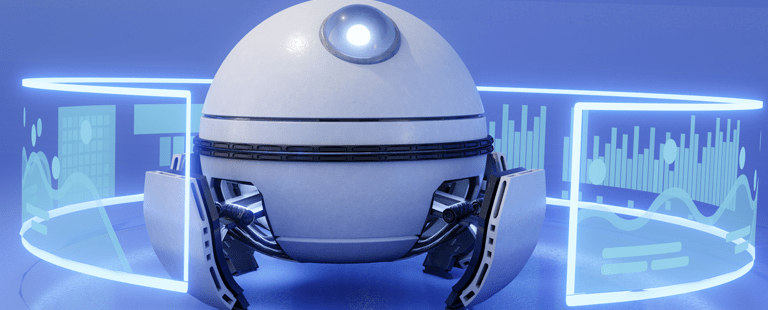












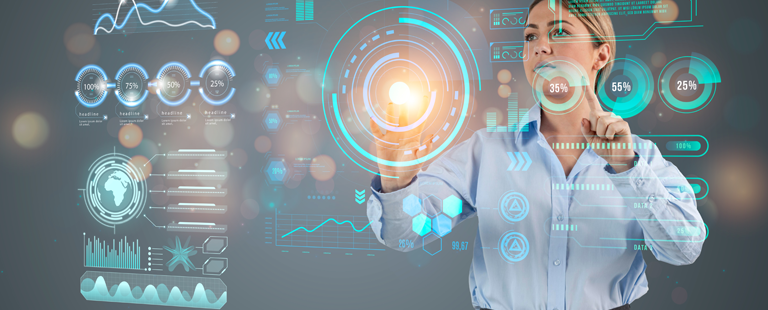























































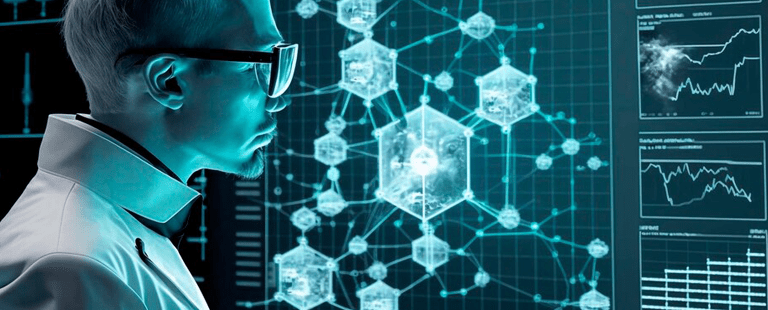








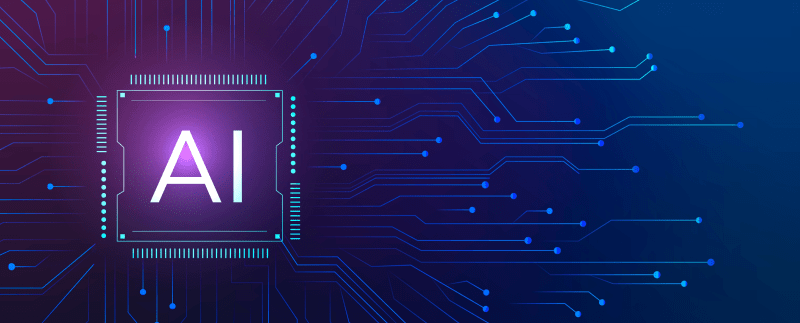






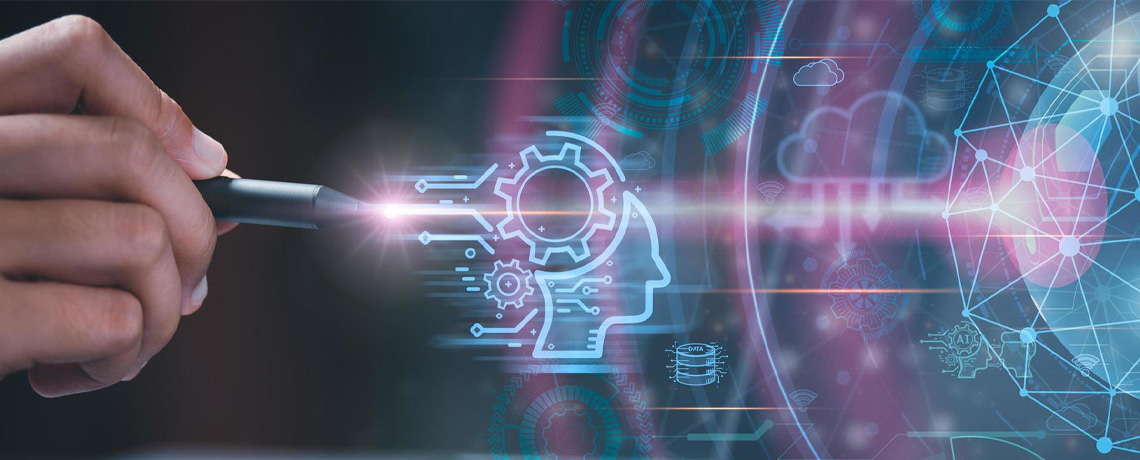












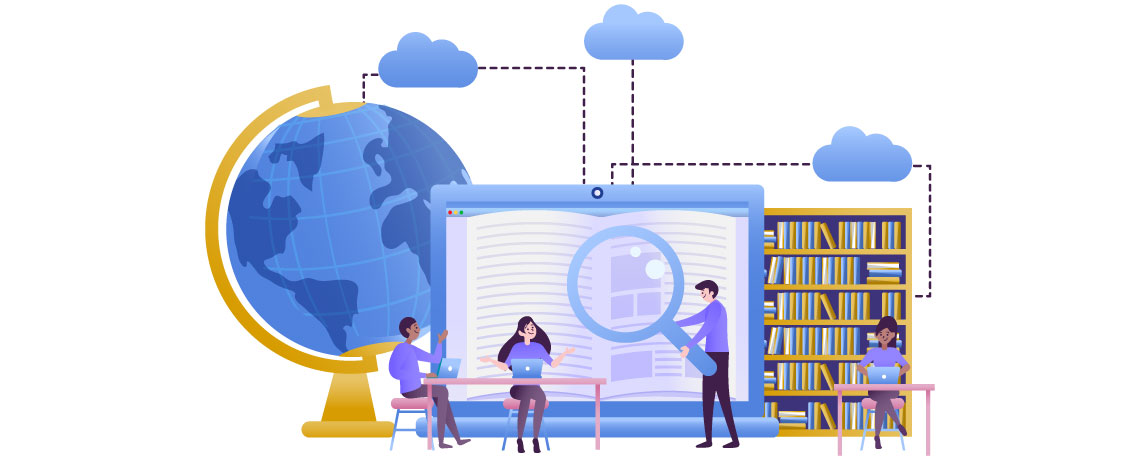





![Arm_Yourself_with_Deep_Business_Knowledge_&_Insights_with_PhD_Program_in_Business_Administration_at_Mahindra_University[1] Arm_Yourself_with_Deep_Business_Knowledge_&_Insights_with_PhD_Program_in_Business_Administration_at_Mahindra_University[1]](https://i0.wp.com/www.mahindrauniversity.edu.in/wp-content/uploads/2023/04/Arm_Yourself_with_Deep_Business_Knowledge__Insights_with_PhD_Program_in_Business_Administration_at_Mahindra_University1.jpg?resize=1140%2C460&ssl=1)
![Emerge_as_a_Forward_thinking_Mechanical_Engineer_with_B_1140x460[1] Emerge_as_a_Forward_thinking_Mechanical_Engineer_with_B_1140x460[1]](https://i0.wp.com/www.mahindrauniversity.edu.in/wp-content/uploads/2023/04/Emerge_as_a_Forward_thinking_Mechanical_Engineer_with_B_1140x4601.jpg?resize=1140%2C460&ssl=1)
![B.Tech_in_Computer_Science_Engineering_(BTech_CSE)_Your_Gateway_to_Become_a_Computer_Genius_1140x460[1] B.Tech_in_Computer_Science_Engineering_(BTech_CSE)_Your_Gateway_to_Become_a_Computer_Genius_1140x460[1]](https://i0.wp.com/www.mahindrauniversity.edu.in/wp-content/uploads/2023/04/B.Tech_in_Computer_Science_Engineering_BTech_CSE_Your_Gateway_to_Become_a_Computer_Genius_1140x4601.jpg?resize=1140%2C460&ssl=1)
![Digital_Marketing_is_Booming_Globally_1140x460[1] Digital_Marketing_is_Booming_Globally_1140x460[1]](https://i0.wp.com/www.mahindrauniversity.edu.in/wp-content/uploads/2023/04/Digital_Marketing_is_Booming_Globally_1140x4601.jpg?resize=1140%2C460&ssl=1)
![MU_Electrical20Computer20Engineering_1140x460[1] MU_Electrical20Computer20Engineering_1140x460[1]](https://i0.wp.com/www.mahindrauniversity.edu.in/wp-content/uploads/2023/04/MU_Electrical20Computer20Engineering_1140x4601.jpg?resize=1140%2C460&ssl=1)
![BA_LLB_Hons_Course_at_Mahindra_University[1] BA_LLB_Hons_Course_at_Mahindra_University[1]](https://i0.wp.com/www.mahindrauniversity.edu.in/wp-content/uploads/2023/04/BA_LLB_Hons_Course_at_Mahindra_University1.webp?resize=1140%2C460&ssl=1)
![Management_&_Business_Administration_is_Tremendously_High[1] Management_&_Business_Administration_is_Tremendously_High[1]](https://i0.wp.com/www.mahindrauniversity.edu.in/wp-content/uploads/2023/04/Management__Business_Administration_is_Tremendously_High1.jpg?resize=1140%2C460&ssl=1)

![whyistraining&placementcellimportant[1] whyistraining&placementcellimportant[1]](https://i0.wp.com/www.mahindrauniversity.edu.in/wp-content/uploads/2023/04/why20is20training2020placement20cell20important1.png?resize=1140%2C460&ssl=1)
![TheDifferencesbetweenRights&Duties[1] TheDifferencesbetweenRights&Duties[1]](https://i0.wp.com/www.mahindrauniversity.edu.in/wp-content/uploads/2023/04/The20Differences20between20Rights2020Duties1.png?resize=1140%2C460&ssl=1)
![sleep_deprivation[1] sleep_deprivation[1]](https://i0.wp.com/www.mahindrauniversity.edu.in/wp-content/uploads/2023/04/sleep_deprivation1.jpg?resize=1140%2C460&ssl=1)
![SelfLoveBlogImage2[1] SelfLoveBlogImage2[1]](https://i0.wp.com/www.mahindrauniversity.edu.in/wp-content/uploads/2023/04/Self20Love20Blog20Image2021.png?resize=1140%2C460&ssl=1)
























